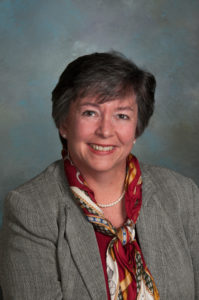
UMW College of Business Dean Lynne Richardson
College of Business Dean Lynne Richardson’s latest column in The Free Lance-Star is entitled, “Aids to ensure better productivity.”
I WEAR hearing aids. Most people are surprised to learn this. They are not only surprised I wear them—and have for more than 15 years—but that I share that I wear them. Evidently, I’m supposed to be embarrassed that I wear them. I’m not.
I also wear glasses or contact lenses. Obviously, people can see when I wear glasses, and I was called “four eyes” as a child. Today, no one seems to care. There’s no stigma attached to wearing glasses.
But it seems some people think I should feel shame that I wear hearing aids. I’m actually proud that I’m smart enough to know that hearing aids help me, both professionally and personally. Read more.
